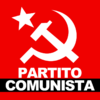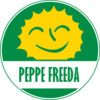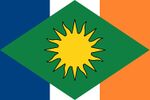1716 Vegno Elections
| |||||||||||||||||||||||||||||||||||||||||||||||||||||||||||||||||||||||||||||||
| |||||||||||||||||||||||||||||||||||||||||||||||||||||||||||||||||||||||||||||||
| Turnout: (% of entitled) | |||||||||||||||||||||||||||||||||||||||||||||||||||||||||||||||||||||||||||||||
The 1716 AN Vegno Elections were the fourth ever general elections of the Republic of Vegno and saw the election of the President of the Republic of Vegno and the composition of the Parliament, the Assemblea Nazionale.
The Parliament will meet for the first session of the fourth legislature on early 1717 AN. Following the constitutional reform approved in 1708 by the Mancuso I Cabinet, each legislature will last five years.
As the General Election of Vegno, population will vote both for the President of the Republic, with the two most voted candidates accessing the final ballot a week after, and for the composition of the Parliament, which will reflect the formation of the new government.
For the first time in the history of the Republic, these will be the first anticipated election before the natural term, following the resignment of the President Luca Zarrella and the dissolution of the Parliament due to the 1716 Vegno Political Scandal.
Mickey Lange Levati was elected as President of the Republic and the Partito Nazionalista Vegnese was the most voted party, able to form a government in alliance with I Verdi.
Voting system
The electoral law in force is the "Rinaldellum", which regulated the previous elections of 1709 and provides for a mixed electoral system, where:
- 81,33% of the seats (122 of 150 in the Assemblea Nazionale) are assigned through the proportional system in multi-member constituencies on the basis of blocked lists; the allocation of seats is carried out at regional levels.
- 18,66% of the seats (28 of 150) are assigned with a single-round majority system (2 seats for the two most voted party in each single region;
In accordance with the Constitution, modified by the Mancuso I Cabinet 150 deputies are elected. Furthermore, the composition of the parliament and the mandate of President of the Republic will now last for five years instead of three.
The voting paper, which is a single one for the majority and the proportional systems, shows the names of the candidates to single-member constituencies and in close conjunction with them the symbols of the linked lists for the proportional part, each one with a list of the relative candidates. The voter is able to cast their vote in three different ways, among them:
- Drawing a sign on the symbol of a list. In this case, the vote extends to the candidate in the single-member constituency that is supported by that list.
- Drawing a sign on the name of the candidate of the single-member constituency and another one on the symbol of one list that supports them; the result is the same as that described above. Under penalty of annullment, the panachage is not allowed, so the voter cannot vote simultaneously for a candidate in the uninominal constituency and for a list which is not linked to them.
- Drawing a sign only on the name of the candidate for the uninominal constituency, without indicating any list. In this case, the vote is valid for the candidate in the single-member constituency and also automatically extended to the list that supports them; however, if that candidate is connected to several lists, the vote is divided proportionally between them, based on the votes that each one has obtained in that constituency.
Background

Main article: 1716 Vegno Political Scandal
For the first time in history, the third legislature lasted only two years due to the 1716 Vegno Political Scandal, which involved the majority parties and their leaders. This resulted in the resignation of most deputies and the subsequent dissolution of the national assembly. The former majority parties, Forza Vegno, PDC and especially the PPV, lost considerable support and, although Luca Zarrella and Antonio Visciglia were totally acquitted, this had a considerable influence on their popularity.
in the middle 1716 the country is in full campaigning for the announced general elections, with three historic moderate main parties,losing a lot of consent: the Partito Democratico Costituzionale, the Forza Vegno and the Partito Popolare Vegnese. According to the polls, the clear favorite of these elections is the far-right Partito Nazionalista Vegnese, which after their protests against the old majority parties, achieved considerable consensus among the people disappointed by the work of Shalva Mancuso and the PPV.
The PPV, one of the main competing parties, was recently convicted of electoral fraud in the previous elections, which caused a large loss of support among the electorate and the election of a new main secretary, Luigi Pandolfi. The Partito Democratico Costituzionale and the Forza Vegno Party, despite their efforts to recover, are clearly underdogs to win due to their low recent popularity for being involved in the electoral scandal with the PPV, and growing electorate dissatisfaction with their handling of the country in the last quite 10 years at the government.
The Partito Nazionalista Vegnese, under the leadership Mickey Lange Lèvati, has become the clear favorite for this election, attracting a large number of voters dissatisfied with the traditional parties and proposing a nationalist and conservative vision for the country. The party presented itself as the only option to restore national stability and prosperity, promising to protect the interests of the country and its people.
However, there is concern among democracy observers about the rise of the Nationalist Party, which has historically expressed extremist positions and has a history of discrimination and violence against minority groups and project of expansion. There are also concerns that a Nationalist Party victory could undermine the country's democratic values and its integration into the Apollonian continent and the world.
Electoral campaign
Almost all the coalitions present in the previous elections fell apart. In fact, no party wanted to remain involved and allied with parties that had participated directly or were only accused of electoral fraud. Both Forza Vegno and the PPV ran separately, as did the PDC, extruded from the PC by the centre-left alliance to break away from the previously accused moderates.

Forza Vegno party is going to the elections with an electoral campaign focused on the country's economic stability and security. Stresses the importance of maintaining a strong economy to ensure jobs and well-being for all citizens. He promises to continue investing in infrastructure and to improve the living conditions of families. Furthermore, the party maintains that security must be a priority and pledges to increase the presence of the police and the army in risk areas.
Partito Democratico Costituzionale on the other hand is promoting an electoral campaign focused on social justice and the fight against poverty. It underlines the importance of creating a society where everyone has equal opportunities and working to ensure that the most vulnerable are protected. It promises to increase investment in education and training and create new jobs. Furthermore, the party undertakes to fight poverty through programs of economic support for families in difficulty.
Both parties have faced allegations of vote-rigging in previous elections, vowing to commit to a transparent electoral system and ensure proper application of the rules. The parties have promised to set up an independent monitoring system to ensure the regularity of the elections and to work with the authorities to ensure maximum transparency.
The Partito Popolare Vegnese recently changed political leaders and pledged to clean up its image after being convicted of electoral fraud. The new leader has promised to introduce new laws to ensure the transparency and fairness of the elections, as well as to take measures to avoid future fraud. Its electoral campaign will focus on the issues of economic freedom and personal freedoms, promising to reduce taxes and eliminate useless laws that limit people's freedom.

The party will also work to create new jobs through investment liberalization and the reduction of trade barriers. The new party leader, Luigi Pandolfi, will represent change and renewal, and will ask the people to give the party a second chance and look to the future, not the past. The election campaign will feature slogans such as "Una nuova era per il Partito Popolare" ("A new era for the People's Party") and "Un futuro migliore per tutti" ("A better future for all").

As regard instead the far-right coalition, also composed of the PNV and I Verdi, the Partito Nazionalista Vegnese is the favorite for the upcoming elections and presents itself as a strong and determined alternative to the old political forces which, according to them, have led the country to the current crisis.
The electoral campaign of the Far Right coalition will focus on denouncing the electoral fraud perpetrated by the traditional parties, which, according to them, have betrayed the interests of the people and led the country to the current crisis. The party will present itself as the only real alternative for the change and reform of the political system and the fight against corruption.
The party will present itself as the only one capable of protecting the values and interests of the country and its people, through a strong and decisive policy, based on security, sovereignty and the protection of citizens, promising to bring the country back to greatness past. The electoral campaign will feature slogans such as "Il vero cambiamento è qui!" ("Real change is here") and "La sicurezza e la sovranità prima di tutto" ("Security and sovereignty first"), and will present itself as the only solution to lift the country out of the current crisis.
However, the PNV's electoral campaign was punctuated by numerous demonstrations called by their supporters, many of which bordered on violence in the main Vegneus cities. The most important just a few weeks before the elections took place in Cossa, where a huge number of supporters of the PNV unleashed a violent demonstration in the vicinity of a rally held by Luigi Pandolfi for the PPV; the demonstration was promptly put down by the vegnese police to maintain the right to dissent but also that of public political speeches, however generating a climate of strong tension a few days before the vote. However, Cossa's was not the only demonstration, many others came out in as many cities by supporters and citizens, now burned by the events of the previous political elections.
Electoral Lists and Candidates
Parliament Results
Overall Results
| Political party |
Vote Received |
% of votes | Deputies Elected | Uninominal seats | Total Parliament seats | % of seats | |
|---|---|---|---|---|---|---|---|
| Forza Vegno | 236.428 | 10,38% | 13 | 14 | 13 | 8,6% | |
| Partito Popolare Vegnese | 65.868 | 2,89% | 0 | 0 | 0 | - | |
| Partito Comunista | 445.988 | 19,58% | 24 | 14 | 38 | 25,33% | |
| Partito Nazionalista Vegnese | 1.055.419 | 46,33% | 58 | 0 | 72 | 48% | |
| Partito Democratico Costituzionale | 164.971 | 7,24% | 9 | 0 | 9 | 6% | |
| Vegno Vivo | 224.961 | 9,88% | 13 | 0 | 13 | 8,6% | |
| I Verdi - Peppe Freeda | 76.914 | 3,38% | 5 | 0 | 5 | 3,33% | |
| Partito Indipendentista Vegnese | 7.359 | 0,32% | 0 | 0 | 0 | - | |
| Total | |||||||
Regional results
| Region | FV | PPV | PC | PNV | PDC | VV | PF | PIV | Total votes |
|---|---|---|---|---|---|---|---|---|---|
| Cossa | 35.504 | 10.651 | 71.008 | 163.318 | 24.853 | 35.504 | 14.202 | 0 | 355.040 |
| South Coast | 5.987 | 1.331 | 13.970 | 31.932 | 3.992 | 6.653 | 2.611 | 0 | 66.526 |
| Largoprato | 6.421 | 1.284 | 12.199 | 30.177 | 4.494 | 7.063 | 2.568 | 0 | 64.206 |
| Bassovento | 4.980 | 1.660 | 11.066 | 25.451 | 4.426 | 5.533 | 2.213 | 0 | 55.329 |
| Compare | 5.259 | 1.434 | 9.562 | 22.950 | 3.347 | 3.825 | 1.434 | 0 | 47.811 |
| Mhazar-Campoasciutto | 46.892 | 6.699 | 63.639 | 147.374 | 23.446 | 33.494 | 13.398 | 0 | 334.942 |
| Buonriposo | 25.467 | 8.489 | 56.594 | 132.995 | 16.978 | 31.127 | 11.319 | 0 | 282.969 |
| Caponord | 5.771 | 1.049 | 9.443 | 25.707 | 2.623 | 5.771 | 2.099 | 0 | 52.463 |
| Falange | 295.599 | 8.880 | 59.198 | 139.116 | 26.639 | 20.719 | 11.840 | 0 | 295.991 |
| Falangina | 777 | 194 | 1.360 | 3.109 | 453 | 389 | 194 | 0 | 6.476 |
| Falangetta | 400 | 145 | 691 | 1.673 | 218 | 364 | 145 | 0 | 3.636 |
| Ponente | 29.405 | 16.336 | 65.345 | 150.294 | 19.604 | 35.940 | 3.267 | 6.535 | 326.726 |
| Badia | 6.588 | 1.647 | 17.294 | 38.706 | 6.588 | 8.235 | 2.471 | 824 | 82.353 |
| Pelago | 33.378 | 6.069 | 54.619 | 142.617 | 27.310 | 30.344 | 9.103 | 0 | 303.440 |
Uninominal seats
| Region | 1° Uninominal Seat | 2° Uninominal Seat |
|---|---|---|
| Cossa | PNV | PC |
| South Coast | PNV | PC |
| Largoprato | PNV | PC |
| Bassovento | PNV | PC |
| Compare | PNV | PC |
| Mhazar-Campoasciutto | PNV | PC |
| Buonriposo | PNV | PC |
| Caponord | PNV | PC |
| Falange | PNV | PC |
| Falangina | PNV | PC |
| Falangetta | PNV | PC |
| Ponente | PNV | PC |
| Badia | PNV | PC |
| Pelago | PNV | PC |
Presidential Results
First Round
| Coalition | Candidate | Vote Received | % of votes | |
|---|---|---|---|---|
| Right-green coalition | Mickey Lange Lèvati | 1.055.419 | 46,33% | |
| Partito Comunista | Tito Bettella | 445.988 | 19,58% | |
| Forza Vegno | Luca Zarrella | 236.428 | 10,38% | |
| Vegno Vivo | Haldi Rinaldi | 224.961 | 9,88% | |
| Partito Democratico Costituzionale | Antonio Visciglia | 164.971 | 7,24% | |
| Total | 2.560.741 | 100% | ||
Second Round
|
| |||||||||||||||||
| |||||||||||||||||
| Political party | Vote Received | % of votes | |
|---|---|---|---|
| Mickey Lange Lèvati | 1.802.301 | 66,62% | |
| Tito Bettella | 902.742 | 33,38% | |
| Total | 2.705.043 | 100% | |
International reactions
 Benacian Union: Unusually for an international election, the strong performance of the PNV garnered favourable coverage in the press organs of the Union-State. The Commission for Foreign Affairs was reported to have dispatched a message of congratulations to Mickey Lange Levati and to further be exploring the possibility of dispatching a legatine mission to establish diplomatic contact.
Benacian Union: Unusually for an international election, the strong performance of the PNV garnered favourable coverage in the press organs of the Union-State. The Commission for Foreign Affairs was reported to have dispatched a message of congratulations to Mickey Lange Levati and to further be exploring the possibility of dispatching a legatine mission to establish diplomatic contact.
| ||||||||||||||||||||||||||









